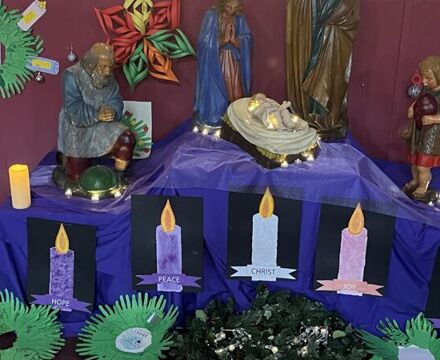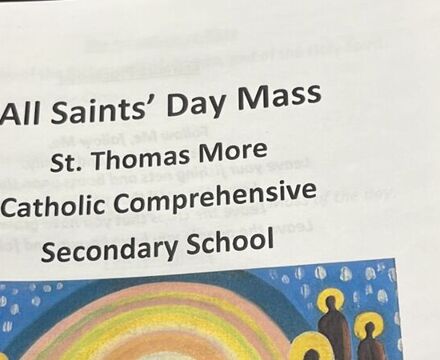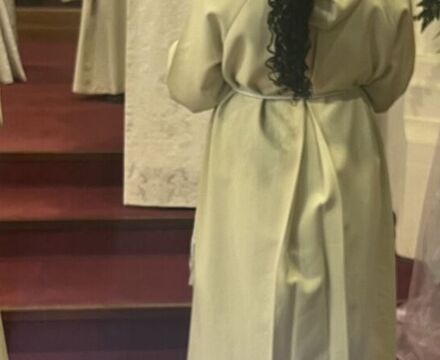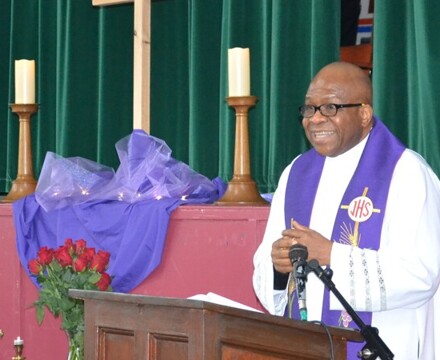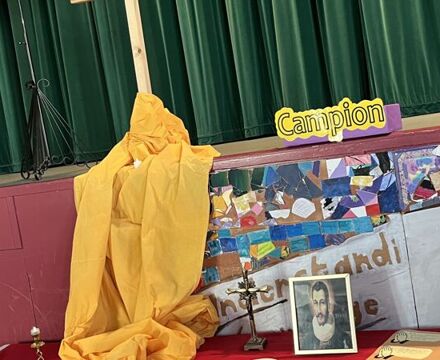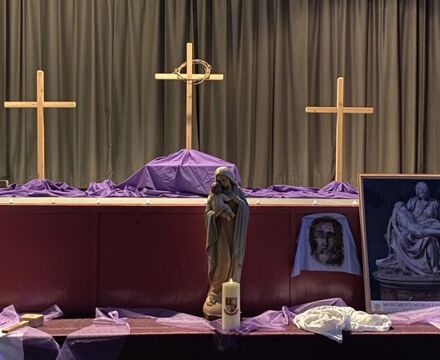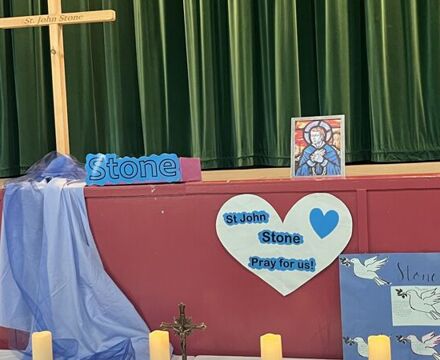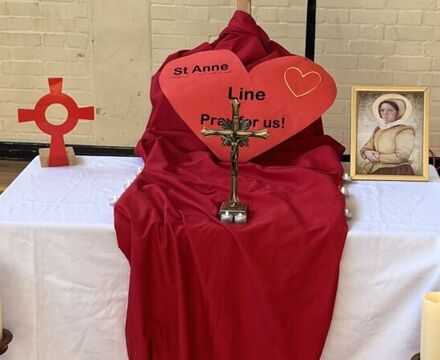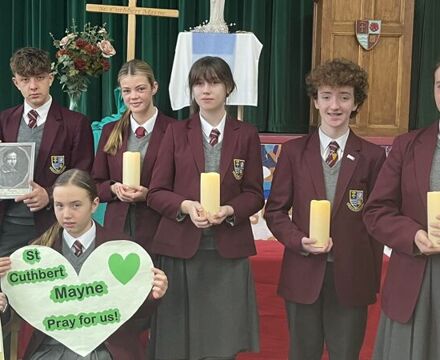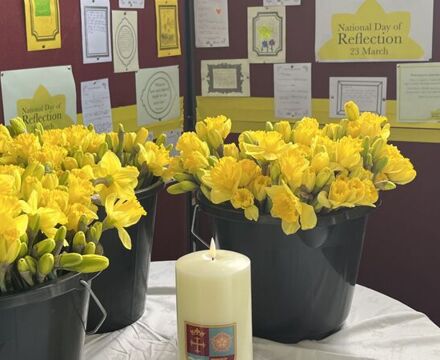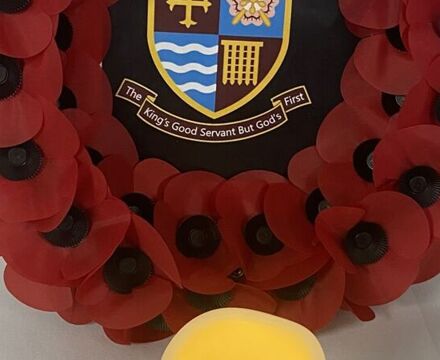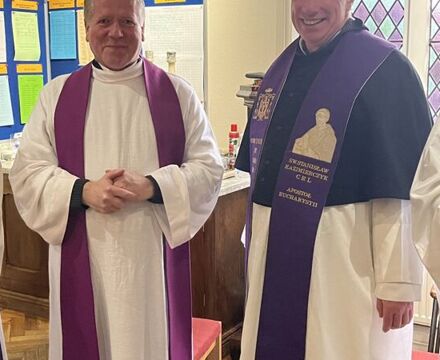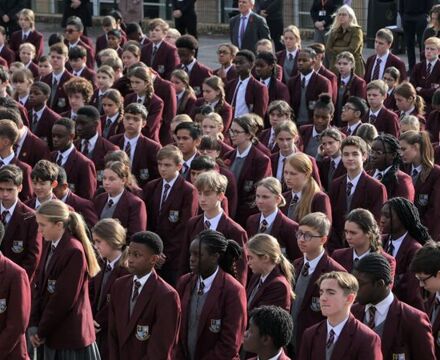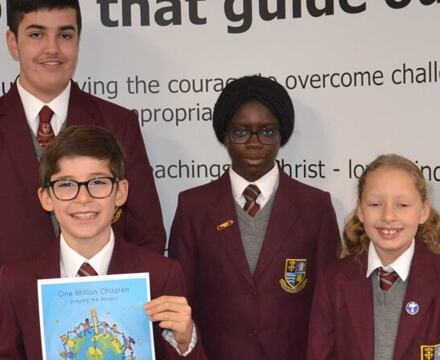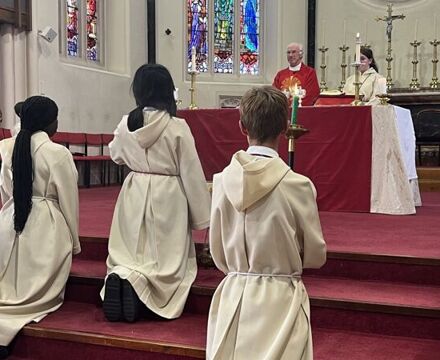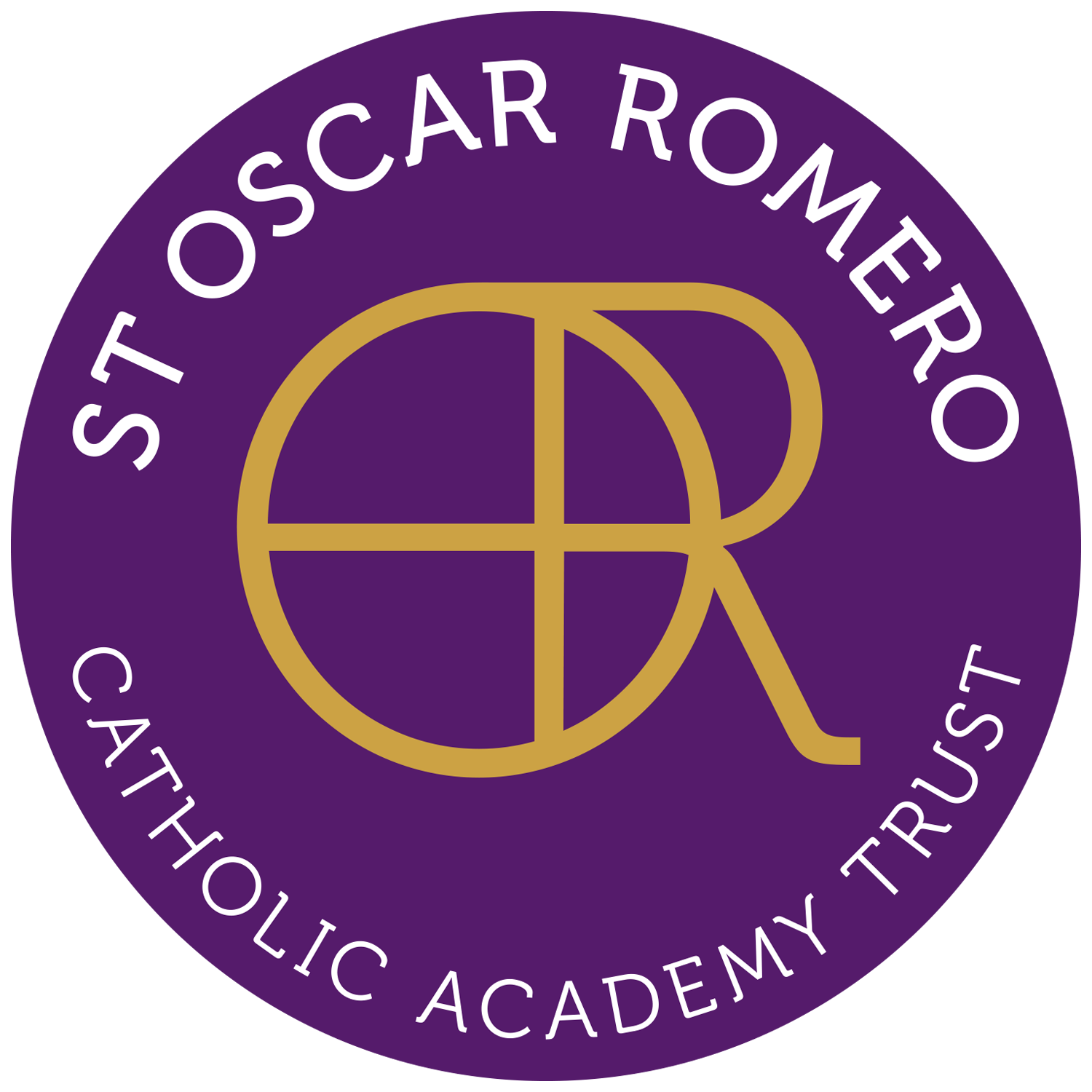- Home
- Spiritual Journey
- Collective Worship - Prayer and Liturgy
Collective Worship - Prayer and Liturgy
Liturgical Year
At St Thomas More, our Catholic faith and the liturgical year sit at the heart of our school year and is faithfully observed. Students have an extensive range of opportunities to plan and participate in the varied ways we celebrate and practice our faith. The prayer life of the school exposes students to a wide experience of prayer and liturgy through scripture, symbols, purposeful silence, meditation, reflection, and liturgical music.
Rhythm and routine of prayer
Prayer is central to the school day and signposts significant moments in the day e.g., Grace before lunch and the end of day prayer. Additionally, student created prayers, for each subject, are said close to the start of the lesson. They recognise the unique, God given, learning experience of each subject. This provides an opportunity to pause, recompose and focus students for the learning of this lesson
Prayers for learning
Dear God, We seek your wisdom and guidance, inspired by the example of St. Thomas More. Help us approach this time with open hearts and minds, embracing the pursuit of knowledge, truth, and justice. Bless our teachers and grant us the strength to uphold integrity and make positive contributions. Amen.
Sporting Events Subject Prayer
Dear God, give us the strength to play our best and to demonstrate good sportsmanship. Help us remember that we are all your children, regardless of the team we represent. May we look back on this event with pride, knowing that we gave it our all while showing respect to our opponents. Amen.
Wellbeing Subject Prayer
Dear God, guide us in finding balance and taking care of our bodies, minds, and hearts. Grant us strength, resilience, and the wisdom to make healthy choices. May we embrace gratitude, mindfulness, and inner peace. Fill us with love, compassion, and forgiveness. Surround us with support and help us support others. Amen.
Mass, Holy Days of Obligation and Liturgies
All Holy Days of Obligation are faithfully observed, all members of the school community attend mass on these most Holy days, students take a leading role in planning masses and liturgies. On occasions when the Holy day of Obligation falls on a non-school day the liturgical celebration is recognised through collective worship at school.
On the last day of the Autumn and Spring term the whole school gathers for the Christmas and Easter liturgies, which provide meaningful moments for the entire school community to engage with the rich traditions of our faith.
There is a meticulously planned school calendar that has the liturgical year at the core of its planning.
Classrooms
Each Form base has a prayer table which provides a focal point for classroom based collective worship. Each table is comprised of several significant objects including a candle, crucifix, rosary, and other symbols that change according to the time in the liturgical year.
Students are invited to personalise their prayer tables year-round by adding their own intentions and intercessions. This fosters ownership, individuality, and engagement in their spiritual journey. Personalising their tables allows for reflection, creativity, and a deeper connection to their faith. It also promotes empathy, as students can include prayers for loved ones, the community, and global issues. This inclusive practice encourages respect for diverse beliefs and traditions.
Whole school assembly
The school community starts the week together at whole school assembly. We come together to engage with scripture, prayer, music and to take the opportunity to reflect on how to go out into to the world as faithful young Catholics with the Gospel values and Catholic Social Teaching at the heart of our actions. Each week, the Gospel is at the heart of prayer and liturgy. There is an overview for the academic year.
Upper and Lower school assembly
All students attend one Key Stage assembly per week. The Key Stage assemblies are another form of collective worship, and they have a specific focus on how students' live lives inspired by Catholic Social Teaching e.g.
-
Subsidiarity - The School Council
-
Dignity of the human person and solidarity – Equality and Equity Student Leadership Team
-
Stewardship – The Eco Student Leadership Team
-
Participation – British Values
-
Preferential option for the poor – Charity events
There is an overview for the academic year.
Form-based Collective Worship
Classroom
This student-led prayer and liturgy takes place three times per week and follows the rich traditions of the Catholic church including symbols, scripture, music, art, and purposeful silence.
Chapel
Once per term, each Form class has a Form time, based in our school. The dedicated Chapel Form time is an opportunity for students to engage with the faith in our dedicated school space. This time is vitally important for all students to know that the Chapel is a place of welcome, sanctuary and solace for everyone in our school community.
Retreat
This school year, all groups will have a one-day retreat experience. The theme of the retreat is based on the Catholic Social Teaching allocated to each year group (see below). During the day, mass is celebrated, and all students will have the time and space away from the routine of school life to reflect upon and develop their relationship with God.
Liturgical Music
When we sing, we experience God’s presence in a new way. In 2003, Pope St John Paul prayed that every Catholic, by “expressing their faith harmoniously and solemnly in song, will experience its richness ever more fully and will abide by the commitment to express its impulses in their daily life.”
Music and singing are central to the prayer life of St Thomas More School.
-
In Form-based collective worship, music provides a focused opportunity for students to contemplate and place themselves in the presence of God.
-
Students arrive to the assembly hall and are met with music and a Bible message to contemplate and place themselves in the presence of God.
In each assembly, communal singing of appropriately selected hymns allows students to experience the richness of the faith.

